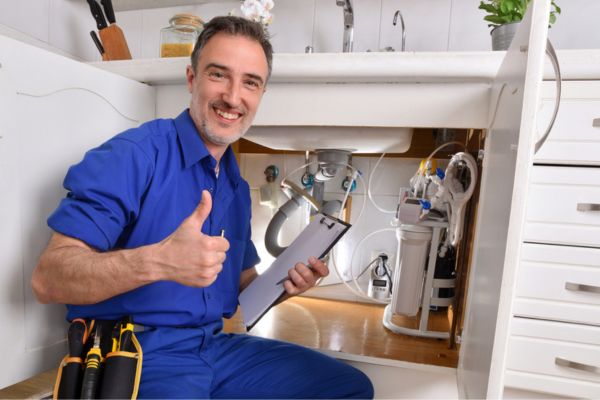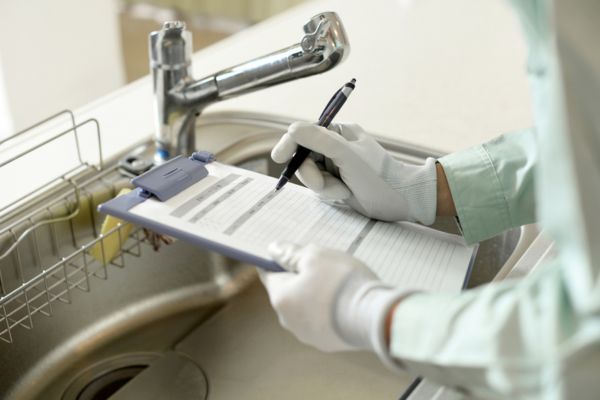Plumbing issues are more common than most people realize. A small leak under a sink or a slow drain at home might seem harmless. Yet undetected or unrepaired issues can transform into major problems. The effects go further than mere annoyances. They can cost thousands of dollars. Landlords and property owners face detrimental repairs and renovations.
To avoid major unexpected issues, regular plumbing inspections are a must. They help avoid high water bills, damage, and potential health and regulatory hazards. Owners will know the state of their plumbing and can repair or replace anything that shows early signs of trouble. The result is a healthier environment for all occupants and peace of mind.
Why Plumbing Inspections Matter
Plumbing inspections matter for many reasons. However, there are common issues, such as:
- Aging pipes and hairline cracks
- Leaky faucets and low water pressure
- Blocked drains and clogged toilets
- Water quality and environmental concerns
Plumbing issues often go unnoticed in the rush of everyday life. Not noticing the slow drip of a faucet or pipe can waste water. But over time, it can compromise nearby structures. Moisture buildup invites mold. That mold can spread, creating a health hazard. Without scheduled inspections, these problems remain hidden until a crisis occurs.
 Preventative Maintenance
Preventative Maintenance
The goal of plumbing inspections is preventative maintenance. Regular inspections detect subtle defects like slow leaks or pipe corrosion. Skilled plumbing inspectors achieve this with specialized equipment. You can identify potential problems concealed behind walls or under floors. Spotting issues early reduces the risk of minor concerns becoming expensive repairs.
Cost Savings
Regular inspections help homeowners and property managers avoid big surprises. A major pipe burst can lead to heavy repair bills. However, there are also water damage restoration costs.
Updating old pipes or drains can prevent inflated water bills caused by unseen leaks. Some insurance providers also reward property owners who keep plumbing systems updated. This may result in reduced premiums or fewer coverage disputes.
Health and Safety
Safe drinking water is essential. Broken or corroded pipes can compromise water quality. Mold growth often flourishes in damp, dark areas. It can aggravate respiratory issues and reduce overall indoor air quality. Sewer line issues also risk health and safety. Overflows or backflow problems can bring contaminated water into living areas.
No one enjoys discolored or foul-smelling water utilities. Proper inspections help ensure a home or commercial building offers clean, safe water. They also prevent mold or bacteria from spreading and protect occupants’ health.
Legal and Compliance
Many cities and towns have rules about the state and maintenance of plumbing systems. Rental properties need to follow municipal codes to stay habitable. Routine plumbing inspections help landlords prove compliance.
When selling a home, owners need a plumbing inspection before finalizing any transaction. For commercial properties, inspections are critical. They can even become vital evidence if legal disputes arise.
Scenarios for Plumbing Inspections
Plumbing inspections prove their worth in unique situations and in everyday life. Many people think about them only when problems arise. Yet inspections have a place during major life or business events.
Renting Out a Property
Landlords must provide safe living spaces. Faulty plumbing can render properties unsafe or legally uninhabitable. Water damage, tenant discomfort, or mold growth are major issues. They can cause tenants to file complaints or pursue civil action.
Regular plumbing checks help ensure tenant satisfaction. They reduce liability for landlords and bring peace of mind to both parties. Additionally, insurance claims can become difficult if inspections are never completed.
Selling a Home
Buyers feel confident when they see evidence of regular home maintenance. Documented plumbing inspections show that the home’s lines and fixtures are in good shape. It also reduces the likelihood of objections late in the sale process.
When inspectors uncover issues, the seller can fix them upfront. This transparency helps build trust. It can serve as a negotiation advantage to command a fair price.
 Buying a Home
Buying a Home
Plumbing inspections offer deeper insights. Standard home inspections can miss subtle problems. Potential buyers can discover aging systems or hidden leaks. The buyer may renegotiate the purchase price if the inspector discovers serious concerns. Occasionally, a buyer asks the seller to fix certain items before closing.
Environmental Purposes
Modern building codes often focus on sustainability. Regular plumbing inspections often include checking environmental compliance measures, such as:
- Stormwater management to prevent contamination of local water sources
- Backflow prevention devices ensure the separation of used and clean water
- Local or seasonal water conservation protocols
Plumbing inspections aren’t limited to buying, selling, or renting. Commercial and residential buildings with historic designations will also require regular plumbing inspections. Older homes and buildings with aging infrastructure may need seasonal checks. Addressing potential problems saves money by avoiding major damage and emergency repairs.
Types of Plumbing Inspections
Different inspection methods exist for different parts of a plumbing system. Checks can be annual, semi-annual, or arranged around peak usage times.
Sewer Inspection
Underground lines transporting wastewater can suffer damage. They can be caused by cracks, clogs, corrosion, and even tree roots. Emergency repairs are expensive, often requiring excavation. Plumbing inspectors use specialized cameras to view inside sewer lines, revealing problems. This ensures property owners are aware of problem areas. They can tackle clogs or minor cracks before they become emergencies.
Backflow Testing
Backflow occurs when contaminated water flows back into the clean water supply. This can happen if water pressure changes or a device controlling valves fails. In some municipalities, testing for backflow prevention is required by law. Inspectors certify that all systems operate properly and safeguard drinking water from contamination.
Sump Pump Inspection
Sumps pumps are the first line of defense against heavy rain and runoff. Plumbing inspectors examine:
- Electrical connections
- Float switches
- Discharge lines
- Debris pits
Regular checks can spare property owners from significant flood repairs.
Water Leak Inspection
Water leak inspections focus on finding hidden problems. High humidity or mold spots often suggest leaks in hard-to-reach areas. These cause structural damage or lead to high water bills. Inspectors can track down causes with thermal imaging cameras and moisture meters. Fortunately, they can pinpoint leaks in unseen areas.
Drain Inspection
Slow drainage or frequent clogs are warning signs of bigger issues. Inspections check for blockages, damage, or even improper pipe geometry. With camera scopes and plumber’s snakes, inspectors identify exact locations of problems. They can remove buildup or debris or make minor repairs before they lead to sewer backups.
Hard Water Testing
Hard water has high levels of minerals like calcium and magnesium. It can create scale buildup in pipes, faucets, and appliances. Over time, it reduces water flow and damages equipment. Some property owners or tenants may complain of hair or skin irritation.
Regular plumbing inspections involve simple tests to measure water hardness. If the water is too hard, they may recommend a softener system. The improvement benefits water quality and extends the life of appliances.
What to Expect During an Inspection
A plumbing inspection usually begins with an appointment set in advance. Inspectors also ask customers about past issues. These can include slow drainage or unusual odors. This helps them focus on important problem areas.
Inspections depend upon the client’s concerns. Yet inspectors typically use the following:
- Acoustic Leak Detection: using devices to detect sound variations caused by water leaks.
- Dye Tests: detecting leaks in systems or tracking flow with colored dyes
- Pressure Testing: Forcing air or water through systems to measure integrity
- Water Quality Tests: collecting and analyzing samples to detect contaminants.
- Thermal Imaging: employing infrared cameras to view unseen problem areas.
When finished, plumbing inspectors prepare a detailed report. They outline any current or potential problems, including severity and recommended solutions. This allows the property owner to prioritize repairs and budget accordingly.
How to Find a Good Plumbing Inspection Company
Finding a reliable plumbing inspection company can be a challenge. Word-of-mouth recommendations can be very helpful but are just the starting point. Property owners should do independent research and will benefit from the following:
- Look for a positive reputation on rating platforms like Yelp and Angie’s List.
- Confirm the inspector is licensed through your state’s licensing board.
- Search for upfront pricing and clear disclaimers.
- Prioritize friendly, informative customer service.
- Do not compromise on 24/7 availability.
Clients should ask about the inspector’s experience. Pay attention to their approach to pricing (hourly vs. flat rate). Learn how they handle emergencies or unexpected issues. Remember, seeking a second opinion is okay if something feels off.
Regular Plumbing Inspections Begin and End With B-N-K Plumbing
Plumbing inspections do much more than identify minor problems. They help you avoid unexpected repair bills, reduce health risks, and maintain compliance.
If you still have questions about regular plumbing inspections, you can contact us. Don’t hesitate to call B-N-K Plumbing at (815) 363-0026. You can also click the button below to book your service appointment online. We proudly provide expert services and unrivaled customer support from our central office in Johnsburg, IL. B-N-K Plumbing looks forward to serving you!


